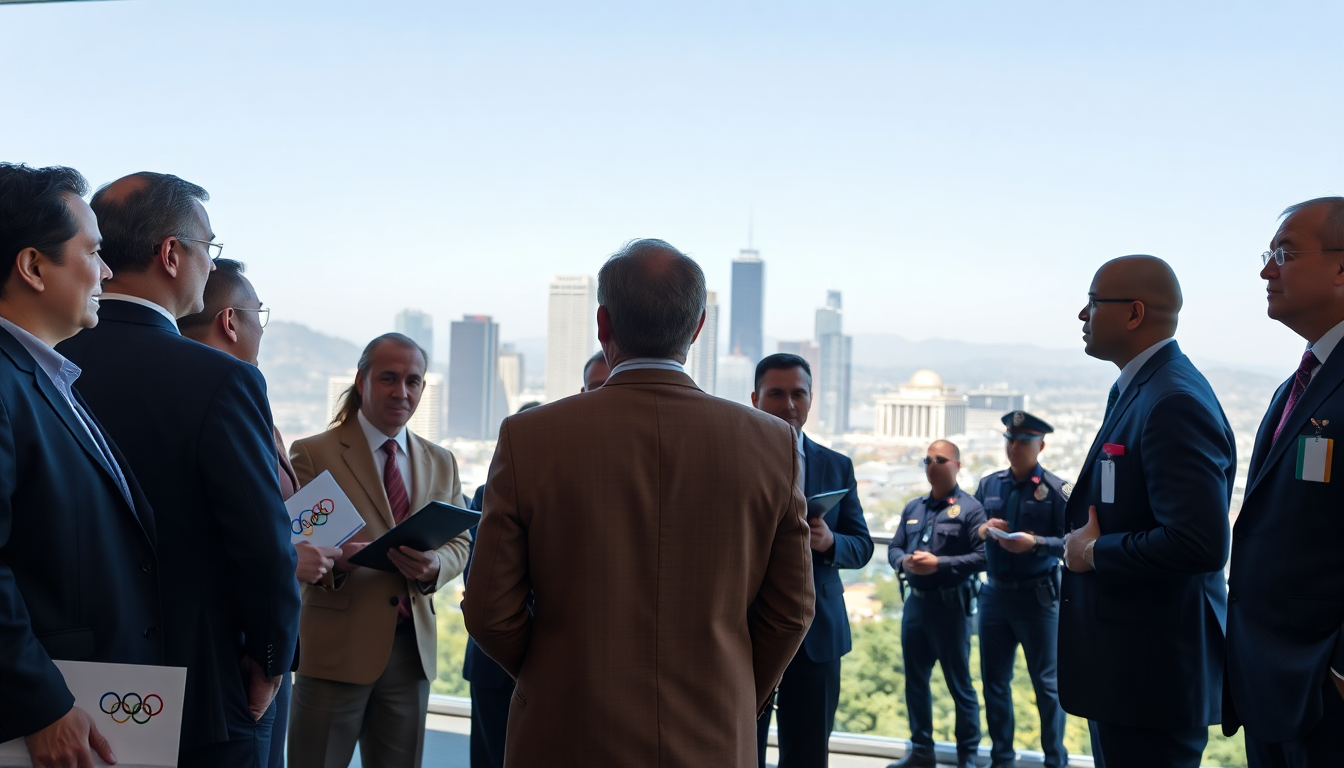Table of Contents
Exciting news is on the horizon for the 2028 Summer Olympics in Los Angeles! President Trump has just announced the formation of a federal task force dedicated to overseeing the preparations for this monumental event. Why is this significant? Because it demonstrates a serious commitment to ensuring that everything runs smoothly, combining efforts from federal, state, and local levels.
This task force will bring together various law enforcement and government agencies, highlighting a unified approach to enhance security and operational efficiency during the games.
Details of the Task Force Announcement
The official announcement is set for Tuesday and promises to feature several well-known Olympic athletes alongside members of the U.S.
Olympic and Paralympic Committees. This move reflects a strategic collaboration among various governmental bodies to manage what is expected to be one of the largest Olympic events ever hosted in the United States. White House press secretary Karoline Leavitt made it clear that President Trump is heavily involved, noting his pivotal role in securing the bid for Los Angeles during his first term.
For the President, this is more than just a duty; it’s an opportunity to showcase his passion for sports and his dedication to this iconic event.
Casey Wasserman, chair of LA28, expressed his gratitude to the President and his administration for their continued support.
He emphasized the importance of strong leadership as the organizing committee gears up for the monumental task of welcoming the world to Los Angeles. The creation of this task force is a crucial step in their planning efforts, signaling a shared commitment to delivering an unforgettable Olympic experience in the summer of 2028.
Challenges Ahead for the Task Force
While establishing a federal task force isn’t entirely new to Olympic planning, it usually means that law enforcement agencies will take the lead on security measures. Typically, the federal government focuses on facilitating the bidding process rather than stepping in after the selection is made.
So, could this approach create friction with local leaders and stakeholders? It’s a valid concern.
Potential pushback may come from state officials, especially Los Angeles Mayor Karen Bass and Governor Gavin Newsom, given their complicated history with the President. Recently, tensions have flared as Trump endorsed aggressive immigration enforcement actions in the city, which Mayor Bass has publicly condemned. Additionally, Trump’s criticisms of state responses to various crises have added strain to their relationship, complicating collaborative efforts as they move forward.
Looking Ahead: Implications for the 2028 Olympics
The formation of this task force might be a double-edged sword—bringing both opportunities and challenges as the nation prepares for the 2028 Olympics. Trump’s involvement could mean greater visibility and more resources devoted to the event, potentially enhancing its overall execution. However, the current political climate and existing tensions with state leadership could create complexities that may hinder effective cooperation.
As planning progresses, the focus will inevitably shift towards ensuring the safety and success of the Games. This is no small feat; it will require seamless coordination among all parties involved. With the eyes of the world set on Los Angeles, how well the task force navigates these dynamics will be key to delivering an Olympic experience that meets the high expectations associated with such a prestigious global gathering. Are we ready for the challenge?





